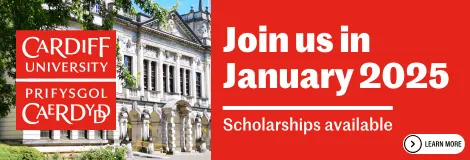Everybody hopes for good exam results, but what if you don’t get the scores you expected? UCAS Clearing is the perfect solution for international and domestic students who want to study at a UK university but didn't quite get the grades they were hoping/expecting on results day.
If you were planning to study in the UK but are now worried about not getting the desired grades required for entering a UK university, there is no need to lose hope. Learn more below about your options and contact SI-UK for a free consultation and our experienced team can help you find a place on a UK course.
How to study in the UK when your grades are low
Apply through UCAS Clearing
Clearing is a great option for students who missed out on an offer from a UK university. UCAS Clearing is the process through which UK universities fill any remaining places on their courses. Clearing occurs every year between July and October; students who could not meet the entry requirements before due to low grades can apply.
As universities want to fill any available space in their courses, students may be offered a place in the still open courses. Prospective students can search for universities and courses available through Clearing on the UCAS website and connect with the desired universities directly to determine if their grades are enough to receive an offer under Clearing.
How do I apply through UCAS for 2025 entry?
-
Register with UCAS: Sign up on the UCAS Hub and begin your application by filling in your details accurately.
-
Complete your details: Ensure all mandatory questions are answered and your email address is up-to-date for important updates.
-
Add your education history: Include all qualifications from secondary education onwards, even pending results, and ensure your referee adds predicted grades if necessary.
-
Complete your employment history: Enter details of up to five paid jobs if applicable.
-
Select your course choices: Choose up to five courses, with no preference order, and consider special application circumstances for certain courses.
-
Write a personal statement: Craft a statement explaining your motivations and experiences in at least 1,000 characters.
-
Submit your application: Review your application, agree to the declaration, and proceed to the final step.
-
Get a reference, pay your application fee, and send your application to UCAS: Obtain a reference and pay the application fee unless chosen universities/colleges grant permission.
Pathways
Applying for foundation and pathway courses is another great option for students looking to enrol on specific UK university courses but are unable to do so because of lower grades or not having the standard grades in relevant subjects.
Foundation Courses
Foundation courses in the UK are preparatory courses that help international students enrol on a UK university undergraduate course. They act as a bridge between the current qualifications and the undergraduate course entry requirements for the UK. Foundation is a one-year programme designed to plug academic gaps and improve English to prepare students for studying undergraduate courses in the UK.
After completing the foundation programme, foundation course providers guarantee progression onto a desired undergraduate course. Courses are available to prepare for a wide variety of subjects, including business, law, finance, social science, medicine, pharmacy, engineering, design, arts, and humanities.
Pre-Masters or Master’s Degree Preparation Courses
Students who do not meet the academic qualifications for a postgraduate course at a UK university can pursue a pre-master’s degree before enrolling in a desired master’s programme. A pre-master lasts between ten weeks and twelve months and successfully prepares international students to study postgraduate courses by improving their academic and English language skills greatly.
Students who pass their master’s preparation course or pre-master’s at the required level and with good attendance are guaranteed progression to a postgraduate degree at their chosen university in the UK.
UCAS Clearing 2025
If you wish to study in the UK but have a low exam score or missed out by one grade point, you can apply for Clearing at UK universities. The UCAS Clearing process for September 2025 opens in May 2025, and SI-UK India’s dedicated Clearing team can help you apply. Arrange your free consultation today.
FAQs
What documentation or additional information should I provide to support my application?
Documentation and additional information required for admission to UK universities:
- Provide transcripts or certificates showing any academic achievements or extracurricular activities.
- Include a personal statement highlighting your passion for the chosen field, relevant experiences, and reasons for pursuing higher education.
- Submit letters of recommendation from teachers, mentors, or employers who can attest to your character, work ethic, and potential for success.
How important are recommendation letters in compensating for low scores?
Recommendation letters can significantly compensate for low scores by providing insight into your character, strengths, and potential. A strong letter of recommendation highlighting your abilities and potential can positively influence admissions decisions.
Are there scholarships or financial aid options available for students with lower scores?
Many UK universities offer scholarships and financial aid options for students with lower scores or financial need. Students should research scholarship opportunities specific to their field of study, demographic background, or special achievements.
Despite low scores, how can I demonstrate my passion for the chosen field of study?
You can demonstrate your passion for the chosen field through extracurricular activities, projects, internships, or volunteer work related to the field. Highlight relevant experiences, achievements, or personal projects exhibiting your commitment and enthusiasm.
Should I contact the admissions office directly to discuss my situation?
Students with lower grades can contact the admissions office directly to discuss their situation. Explain your academic challenges, highlight your strengths and achievements, and express your sincere interest in the programme. Admissions officers may provide valuable guidance, support, or insight into alternative pathways for admission or academic support programmes.




 I sincerely thank SI-UK for getting me accepted to UCL. The MSc in Urban Development and Planning is extremely competitive, but the right guidance provided by SI-UK made my dream of studying at University College London a reality. The services were exceptional from beginning to end.
I sincerely thank SI-UK for getting me accepted to UCL. The MSc in Urban Development and Planning is extremely competitive, but the right guidance provided by SI-UK made my dream of studying at University College London a reality. The services were exceptional from beginning to end. 

